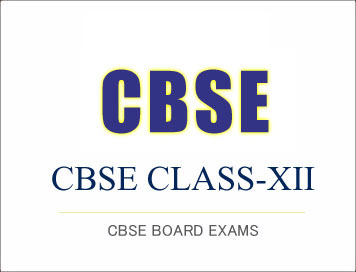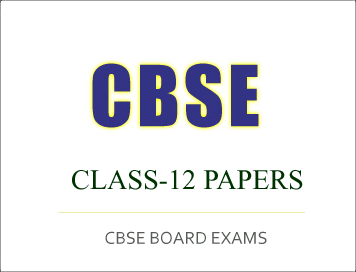CBSE PORTAL : CBSE 2017-18 Syllabus Class-12 : Creative writing and translation studies | |
- CBSE 2017-18 Syllabus Class-12 : Creative writing and translation studies
- CBSE Class-12 Exam 2017 : All India Scheme Question Paper, Derivative Market Operations
- CBSE Class-12 Exam 2017 : All India Scheme Question Paper, Capital Market Operations
- CBSE Class-12 Exam 2017 : All India Scheme Question Paper, Troubleshooting And Maintenance Of Electronic Equipment
- CBSE 2017-18 Syllabus Class-12 : Economics
| CBSE 2017-18 Syllabus Class-12 : Creative writing and translation studies Posted: 09 Aug 2017 11:27 PM PDT
CBSE Class-12 Syllabus 2017-18
Subject: Creative writing and translation studiesI. Aims and Objectives of the Course a) Creative Writing 1. Understand literature as a creative act. 2. Understand the creative process involved in literary composition. 3. Understand different forms and techniques of literary composition such as types of prose, poetry and drama. 4. Appreciate the writer's purpose, intended meaning, attitudes and moods experienced and cultural appeal. 5. Formulate the emotional and intellectual response to literacy composition. 6. Understand multiplicity of meanings of a composition including indirect and figurative meaning. 7. Write original composition in prose, poetry and drama. b) Translation Studies To make learners: 1. Aware of the process of translation. 2. Understand the difficulty of translating across languages. 3. Able to translate simple texts effectively. c) Approach This course is as much teacher centred as student centred. That implies the teacher herself/himself shall display in his/her interactions a degree of literary ensibility and sensitivity. It is expected that the teacher will:
d) Methodology Classroom discussions and a brief exposition of composition by students to cultivate the ability to express and reflect the grounds of their response. ACQUISITION OF LANGUAGE SKILLS LISTENING Listening and Speaking (Aural and Oral) I. Objectives of Aural and Oral Skills involved in the conduct of the course are to develop the ability to: CLICK HERE TO DOWNLOADCourtesy: CBSE
|
| CBSE Class-12 Exam 2017 : All India Scheme Question Paper, Derivative Market Operations Posted: 09 Aug 2017 12:42 AM PDT |
| CBSE Class-12 Exam 2017 : All India Scheme Question Paper, Capital Market Operations Posted: 09 Aug 2017 12:21 AM PDT |
| Posted: 09 Aug 2017 12:10 AM PDT |
| CBSE 2017-18 Syllabus Class-12 : Economics Posted: 08 Aug 2017 11:34 PM PDT
CBSE Class-12 Syllabus 2017-18
Subject: EconomicsRationale Economics is one of the social sciences, which has great influence on every human being. As economic life and the economy go through changes, the need to ground education in children’s own experience becomes essential. While doing so, it is imperative to provide them opportunities to acquire analytical skills to observe and understand the economic realities. At senior secondary stage, the learners are in a position to understand abstract ideas, exercise the power of thinking and to develop their own perception. It is at this stage, the learners are exposed to the rigour of the discipline of economics in a systematic way. The economics courses are introduced in such a way that in the initial stage, the learners are introduced to the economic realities that the nation is facing today along with some basic statistical tools to understand these broader economic realities. In the later stage, the learners are introduced to economics as a theory of abstraction. The economics courses also contain many projects and activities. These will provide opportunities for the learners to explore various economic issues both from their day-to-day life and also from issues, which are broader and invisible in nature. The academic skills that they learn in these courses would help to develop the projects and activities. The syllabus is also expected to provide opportunities to use information and communication technologies to facilitate their learning process. Objectives:
CLICK HERE TO DOWNLOADCourtesy: CBSE |
| You are subscribed to email updates from CBSE PORTAL : CBSE, ICSE, NIOS, JEE-MAIN, AIPMT Students Community. To stop receiving these emails, you may unsubscribe now. | Email delivery powered by Google |
| Google Inc., 1600 Amphitheatre Parkway, Mountain View, CA 94043, United States | |

